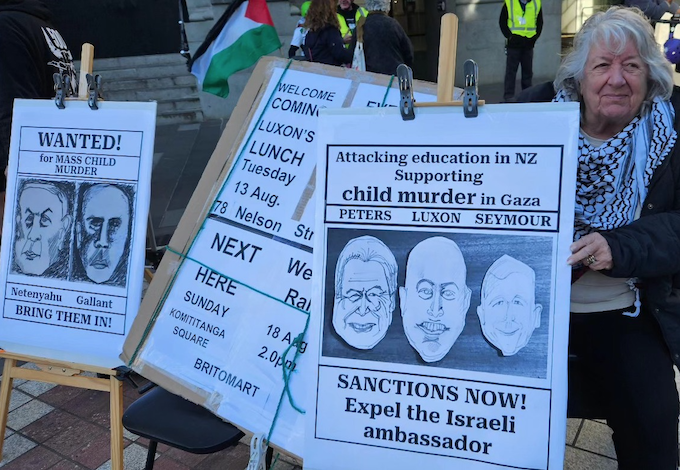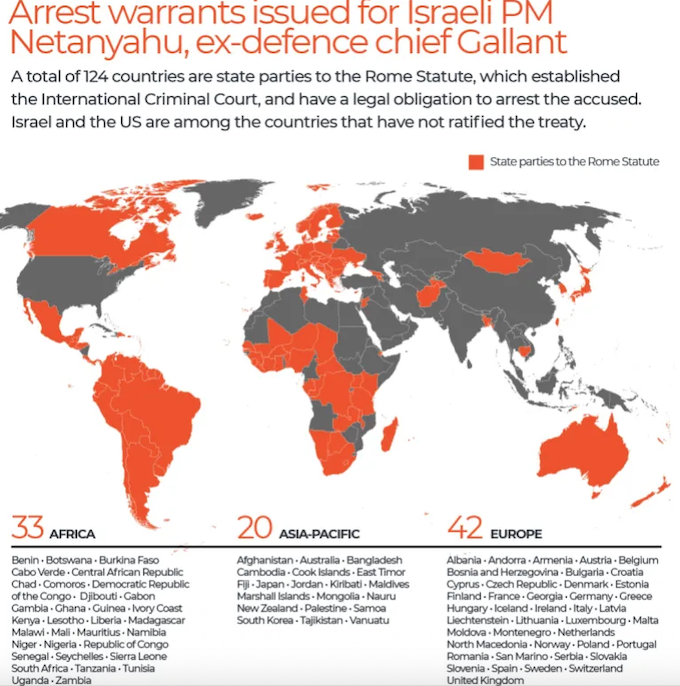
Prime Minister Christopher Luxon has told a media conference Israeli Prime Minister Benjamin Netanyahu would be arrested if he entered New Zealand
“We support the ICC [the International Criminal Court],” Luxon said yesterday.
“We believe in the international rules-based system, we support the ICC, and we would be obligated to do so.”
- READ MORE: Israel and the ICC: A legal scholar’s response to The Washington Post
- Many of Israel’s Western supporters indicate they would arrest Netanyahu. Will Australia and NZ follow suit?
- Other Israel’s war on Gaza reports
The NZ prime minister’s comments followed the ICC announcing arrest warrants for Netanyahu and Israel’s former defence minister Yoav Gallant on allegations of war crimes and crimes against humanity in the 13-month war on the besieged Gaza Strip that has killed more than 44,000 people — mostly women and children.
Netanyahu and Gallant are now fugitives from global justice after the ICC issued the arrest warrants against them.
Although Israel — and the US — does not recognise the authority of the ICC, the highest international criminal court, and Netanyahu and Gallant will not turn themselves in, the pair’s world has got a lot smaller.
The Rome Statute, the treaty that established the ICC, includes 124 state parties across six continents.
Legally bound
Under the statute, countries that are part of the ICC are legally bound to enforce its arrest warrants, according to international human rights lawyer Jonathan Kuttab.
“The law operates on the basis of a presumption that people will obey it. That’s how all laws are created,” Kuttab told Al Jazeera.
“You expect everybody to respect the law. Those who don’t respect the law are themselves violating the law.”
He added that there were early signs that countries would not ignore the court’s decision.
Many of Israel’s allies — including several European Union countries — have committed to enforcing the arrest warrants.
The ICC was set up in 2002 to prosecute war crimes, crimes against humanity, genocide and the crime of aggression when member states are unwilling or unable to do so themselves. It is based in The Hague in the Netherlands.
The case at the ICC is separate from another legal battle Israel is waging at the top UN court, the International Court of Justice, in which South Africa accuses Israel of genocide, an allegation Israeli leaders deny.
Here is a list of the countries where Netanyahu and Gallant could be detained after the ICC’s decision.













































